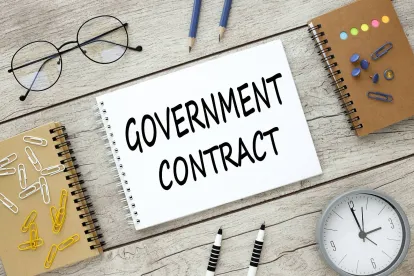Whether arriving as a “dawn raid,” an agent’s knock at the door, or service of a civil subpoena, government contacts often come out of the blue and always involve high stakes. A swift and careful response is critical to ensuring the company’s legal rights are preserved, potential damage is contained, and reputational harm is minimized. Maintaining transparency and cooperation with the government while safeguarding the company’s legal rights can be challenging. This article identifies key types of government visits and inquiries and provides best practices for companies to prepare for them.
What Government Contacts Should I Prepare for?
Civil Subpoenas: Multiple statutes provide authority to government agencies to issue civil subpoenas to investigate statutory violations. These can be titled as civil investigative demands (CIDs), administrative subpoenas, or similar titles. These tools can allow the government to compel document production, written responses to interrogatories, or sworn oral testimony. Failure to comply can subject the company to court sanctions, and information produced can in many cases be shared with criminal investigators.
Grand Jury Subpoenas: Grand jury subpoenas are used only in criminal investigations and are generally issued at the request of a prosecutor. These subpoenas can be used to compel witness testimony or the production of documents. Failure to comply, or adequately comply, with a grand jury subpoena may result in criminal charges for obstruction of justice.
Requests for Interviews: Although investigators may schedule an interview in advance, investigators often attempt to interview witnesses without advance notice to catch them off guard (sometimes referred to as a “knock-and-talk”). Companies should not prohibit employees from speaking with the government, as this could amount to obstruction of justice. Nonetheless, it is permissible to issue guidelines to help individuals know the limits of what investigators can discuss or request.
Search Warrants: These are issued by a judge or a magistrate upon a finding of probable cause and authorize immediate seizure of documents onsite, including seizure of digital evidence stored on servers, laptops, tablets, and cell phones. Search warrants also can be used to obtain electronic records from third parties (e.g., email, iCloud storage, Google Drive, etc.).
What Are the Risks of Not Preparing for Government Contacts?
Although your company may only receive government visits and inquiries occasionally, it is important to adopt proactive policies and practices in advance because government contacts can occur at any time, with no warning, and carry significant risks. Those risks include (1) providing inaccurate or incomplete information that undermines the company’s credibility with investigators and prosecutors, leading to greater scrutiny and fewer accommodations; (2) having company representatives intentionally or recklessly provide incomplete or inaccurate information, resulting in potential charges for obstruction of justice or false statements; (3) providing more information than is necessary, without helpful context, leading the government to broaden its investigation beyond what otherwise would have occurred; (4) failing to conduct an internal investigation, with the result being that the company misapprehends its legal risk and misses the opportunity to place the company in the best possible position; and (5) inadvertently waiving attorney-client privilege. Privilege law is complicated, and it is easy to waive privilege without careful control over the flow of information. For example, sharing results from an internal investigation with business persons or financial auditors who do not need to know the information for giving legal advice may waive confidentiality.
What Can You Do to Prepare for Government Contacts?
The first and most fundamental step in preparing for government contacts is to adopt a company policy on government visits and inquiries. This policy can provide the basis for training your workforce and promulgating procedures to implement the policy at specific locations.
A well-crafted policy, with supporting procedures and training, will address the following points:
Designate points of contact in advance. At each company location, all employees should be trained to notify a specific, designated person to immediately report all government contacts. This will typically be a point of contact in the company’s legal department.
Advise employees of their rights. Company employees who face an unexpected government inquiry are often scared and do not know their rights. Train employees, in advance, that they do not have to give interviews to government investigators — it is their choice whether or not to speak. Inform employees that the company is willing to provide preparation and resources to help them navigate government contacts.
Involve legal counsel and key corporate stakeholders. Experienced legal counsel can help determine the scope and implications of the inquiry and advise on responding appropriately. Arranging for outside counsel ahead of time is essential, given there may be little or no warning when an investigator arrives. Outside counsel can work to protect the company’s interests and privileged information.
Adopt protocols to follow during search warrants. Although rare, onsite searches by law enforcement are high-stake events. Protocols will ensure that a qualified company representative or legal counsel is monitoring and logging all activities by law enforcement and is taking steps to protect privileged information.
Control the flow of information. Government contacts can be disruptive to business operations and pose reputational harm. Ensure that your company implements its crisis-management and crisis-communication plans as necessary, depending on the type of government contact. Establish a central point of contact to manage communications and information related to the inquiry. Develop communications protocols and share information within the organization on a need-to-know basis.
Keep close track of all information requested by or given to an investigator. Investigators may request electronic or physical records and generally have the right to seize documents or even electronic devices. To avoid business disruption and to allow full access to any evidence taken by investigators, it may be possible to negotiate turning over electronic copies of information. Any information taken by or given to the investigators should be carefully catalogued and tracked.
Implement a document hold where applicable. Government visits and inquiries should be treated as a precursor to potential litigation. In addition, to earn full cooperation credit with prosecutors, it is essential to preserve all relevant evidence. Therefore, after a government inquiry, take steps to identify and preserve all relevant documents, records, emails, and other forms of communication that may be related to the inquiry.
Conduct an internal investigation. To accurately assess the risks at hand, your company would be well advised to conduct an internal investigation whenever it has reason to believe cause for a government investigation exists. An internal investigation can enable your company to frame the facts to reach the best possible resolution. It also can help you determine whether to voluntarily self-disclose potential violations of the law before they come to the attention of regulators or to pursue cooperation credit. Finally, an internal investigation may allow you to identify and remediate potential compliance weaknesses.





 />i
/>i

